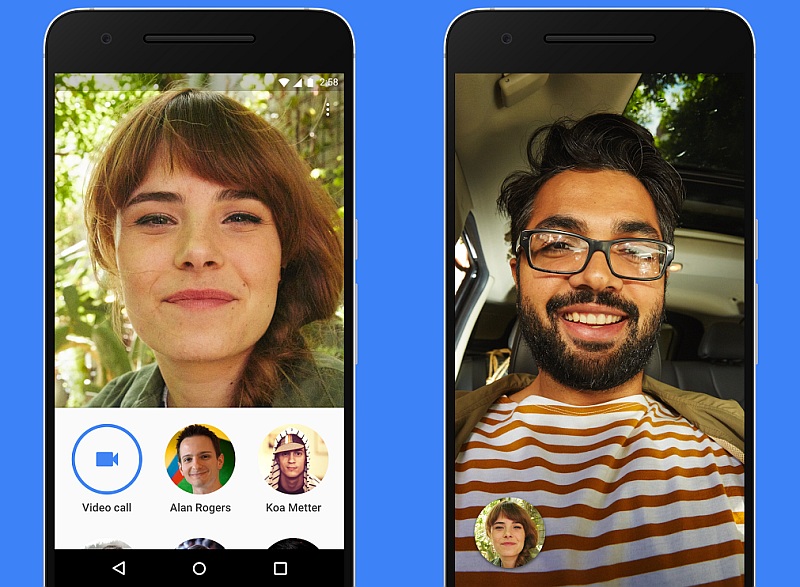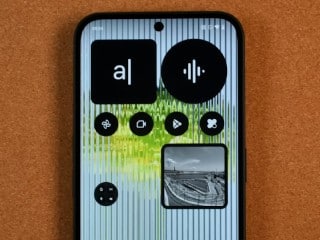- Home
- Apps
- Apps Features
- Google Duo Is Fast, Simple, and Out Now
Google Duo Is Fast, Simple, and Out Now

"Video calling is full of friction right now," says Amit Fulay, Product Manager for Duo, Google's latest take on video calling. Announced at Google I/O earlier this year alongside instant messaging app Allo, Duo wants to solve this with an app that's fast, reliable, and easy to use. Gadgets 360 was given a chance to use the app for some time before Tuesday's official rollout, and in our experience it worked well.
According to Google, the rollout has started now, and will be coming to all regions over the next 24 hours to all users, but as first impressions go, there's a lot to like about Duo.
However, the question that was on our mind - and one that a lot of people have been wondering about - is what this means for Hangouts, Google's existing messaging platform, which supports voice, text, and video.
Fulay acknowledges that there are now a lot of different communication platforms that Google is running, but says that Google sees these different apps as complementary, not competing.
"The way I see it, there are three pillars, first there's the user, for whom we've got apps like Allo and Duo, which are really simple and fast," he explains, "so if you just want to call someone then this is what you would do. It's as easy as making a phone call."
"Then, there are carrier services, so we're working to develop RCS, which is an evolved form of SMS and MMS," he adds. This will add more functionality to the Messaging app on Android phones.
"And finally, there's collaboration, and that's where we see Hangouts having an important role to play," he finishes. "It's great for productivity and collaboration, it's got Calendar support, so if you're an Apps user, it completes the suite."
But is there really a need for another video calling application? If you want to, you can video chat using Skype, or Facetime, or Messenger, or any number of other options already. But according to Fulay, most of these come with some compromises - the video chat will be buried behind menus, or there will be platform limitations, or it will only work well on some devices and some networks. "Duo is simple, it's multi-platform, it's fast, and it's focused on doing just what it does very efficiently," says Fulay.
And there's no denying that it is simple and fast. After you've completed registering your number with Duo, it doesn't ask you to sign in - the account is associated with your phone number. This does bring about some limitations - you can only use it on your phone and only on one device at a time - but it also makes it as simple to set up as WhatsApp. After you've set it up, the first thing you'll see when you start the app is your face - most of the screen is your video feed, with a thick white band at the bottom that has a single blue video call icon in it.
The icon is bright and impossible to miss. Tap it, and you're shown a list of your phone contacts - first people who are already on Duo, and then all the other people in your contacts, whom you can invite to sign up. Tap on a name to call someone, and once the call is connected, you can tap a button to reverse the camera.
It's incredibly bare bones, but it lives up to the promise of being fast and easy. The app works as you switch from Wi-Fi to data, without dropping the connection, but if you're using it on the go, it will drop the quality settings to keep the connection going. The idea is that it should be usable even on 2G networks - though your image gets pretty fuzzy even on the Wi-Fi 'broadband' most Indian homes have.
There are no bells and whistles, no added features. Fulay explains that Duo has end to end encryption because, unlike Allo, it has no intelligence being applied. "We spent a lot of time working to optimise the product, to make sure that people have a good experience on all networks," he says.
It's an interesting approach, but will people be open to the idea of installing yet another application, and that too one with such tight focus? Features such as group calling, for example, which are present in most other apps that allow video calling, are not possible here.
Google is not ruling out anything as of now though. "Features like group calls, and the roadmap, for a product that's just been launched, it's going to evolve, and we're going to see what the users want, how they're using the product, to figure out what comes next," Fulay explains.
Get your daily dose of tech news, reviews, and insights, in under 80 characters on Gadgets 360 Turbo. Connect with fellow tech lovers on our Forum. Follow us on X, Facebook, WhatsApp, Threads and Google News for instant updates. Catch all the action on our YouTube channel.
Related Stories
- Samsung Galaxy Unpacked 2026
- iPhone 17 Pro Max
- ChatGPT
- iOS 26
- Laptop Under 50000
- Smartwatch Under 10000
- Apple Vision Pro
- Oneplus 12
- OnePlus Nord CE 3 Lite 5G
- iPhone 13
- Xiaomi 14 Pro
- Oppo Find N3
- Tecno Spark Go (2023)
- Realme V30
- Best Phones Under 25000
- Samsung Galaxy S24 Series
- Cryptocurrency
- iQoo 12
- Samsung Galaxy S24 Ultra
- Giottus
- Samsung Galaxy Z Flip 5
- Apple 'Scary Fast'
- Housefull 5
- GoPro Hero 12 Black Review
- Invincible Season 2
- JioGlass
- HD Ready TV
- Latest Mobile Phones
- Compare Phones
- Tecno Pova Curve 2 5G
- Lava Yuva Star 3
- Honor X6d
- OPPO K14x 5G
- Samsung Galaxy F70e 5G
- iQOO 15 Ultra
- OPPO A6v 5G
- OPPO A6i+ 5G
- Asus Vivobook 16 (M1605NAQ)
- Asus Vivobook 15 (2026)
- Brave Ark 2-in-1
- Black Shark Gaming Tablet
- boAt Chrome Iris
- HMD Watch P1
- Haier H5E Series
- Acerpure Nitro Z Series 100-inch QLED TV
- Asus ROG Ally
- Nintendo Switch Lite
- Haier 1.6 Ton 5 Star Inverter Split AC (HSU19G-MZAID5BN-INV)
- Haier 1.6 Ton 5 Star Inverter Split AC (HSU19G-MZAIM5BN-INV)







![[Partner Content] OPPO Reno15 Series: AI Portrait Camera, Popout and First Compact Reno](https://www.gadgets360.com/static/mobile/images/spacer.png)









